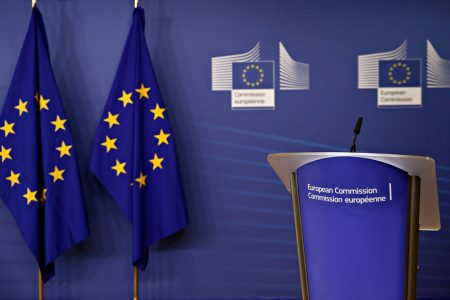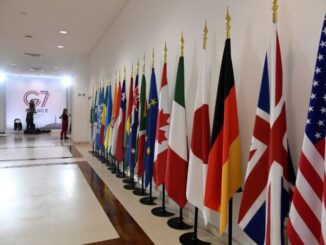
The European Commission decided on Wednesday not to open an excessive deficit procedure against Spain, despite the country ending last year exceeding the limit set by EU fiscal rules, while urging Madrid to address “emerging delays” in the implementation of its national recovery plan and pass accompanying fiscal reforms.
The official announcement from Brussels came hours after Spanish Prime Minister Pedro Sánchez (PSOE/S&D) announced in parliament the “great news” that Brussels had decided to exempt Spain from the sanctions even though it will end 2023 with a budget deficit of 3.6%, six-tenths of a percentage point above the EU limit.
Spanish Economy Minister Carlos Cuerpo (PSOE/S&D) stressed on Wednesday that Brussels’ decision to remove Spain from the group of EU countries with macroeconomic imbalances for the first time since 2012 “confirms once again that our growth model is strong, balanced and compatible with fiscal responsibility,” Euractiv’s partner EFE reported.
The European Commission concluded that opening a formal procedure against Spain – which could lead to sanctions – was not justified because the deviation, although not close to the reference value, is temporary and will fall to 3% this year and 2.8% in 2025, as per a recent European Commission forecast.
Spain has thus avoided the minimum fiscal adjustment of 0.5% of GDP per year (€7.3 billion) that Brussels would have demanded in the event of a sanction, although it will have to gradually reduce the fiscal slippage.
Madrid will also be able to avoid the scrutiny of its public accounts by Brussels, as was the case for a decade under the procedure opened by the EC after the 2008 financial crisis.
“The European Commission will, in any case, continue to monitor budgetary developments in Spain and will reassess the situation in the autumn”, EU Economy Commissioner Paolo Gentiloni said on Wednesday.
The EU executive resumed several cases against some countries that had been suspended for four years following the outbreak of the COVID-19 pandemic in March 2020 and the start of the Russian invasion of Ukraine in February 2022.
The aim of the excessive deficit procedure is to ensure that EU countries that exceed the deficit and debt limits of 3% and 60% of GDP, respectively, set by the EU treaties, make adjustments to correct their slippage under the threat of sanctions if they do not take action.
In addition, it is keeping open the procedure it opened in 2019 against Romania because Bucharest has not taken measures to tackle its deficit.
At the same time, this procedure has not been applied to the Czech Republic, Estonia, Slovenia and Finland, as the Commission has considered factors such as the evolution of public debt, the economic situation and defence investment.
According to the new fiscal discipline rules adopted this year, the deficit adjustment paths approved by Brussels should ensure a deficit reduction of at least 0.5 percentage points per year.
(Antonio Suárez-Bustamante and Laura Pérez-Cejuela | EFE)
Take the Survey at https://survey.energynewsbeat.com/






